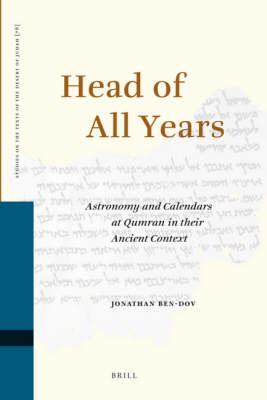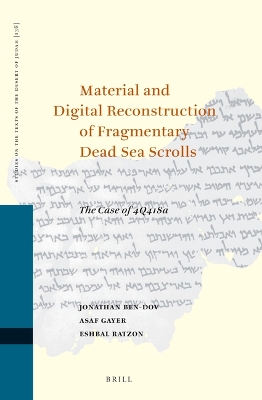Studies on the Texts of the Desert of Judah
2 primary works
Book 78
Rather than being an isolated, primitive body of knowledge the Jewish calendar tradition of 364 days constituted an integral part of the astronomical science of the ancient world. This tradition-attested in the Dead Sea Scrolls and in the Pseudepigrapha-stands out as a coherent, novel synthesis, representing the Jewish authors' apocalyptic worldview. The calendar is studied here both "from within"-analyzing its textual manifestations -and "from without"-via a comparison with ancient Mesopotamian astronomy. This analysis reveals that the calendrical realm constituted a significant case of inter-cultural borrowing, pertinent to similar such cases in ancient literature. Special attention is given to the "Book of Astronomy" (1 Enoch 72-82) and a variety of calendrical and liturgical texts from Qumran.
Book 136
Material and Digital Reconstruction of Fragmentary Dead Sea Scrolls
by Jonathan Ben-Dov, Asaf Gayer, and Eshbal Ratzon
Published 20 July 2022
Scholars working with ancient scrolls seek ways to extract maximum information from the multitude of fragments. Various methods were applied to that end on the Dead Sea Scrolls as well as on other ancient texts. The present book augments these methods to a full-scale protocol, while adapting them to a new computerized environment. Fundamental methodological issues are illuminated as part of the discussion, and the potential margin of error is provided on an empirical basis, as practiced in the sciences. The method is then exemplified with regard to the scroll 4Q418a, a copy of a wisdom composition from Qumran.

